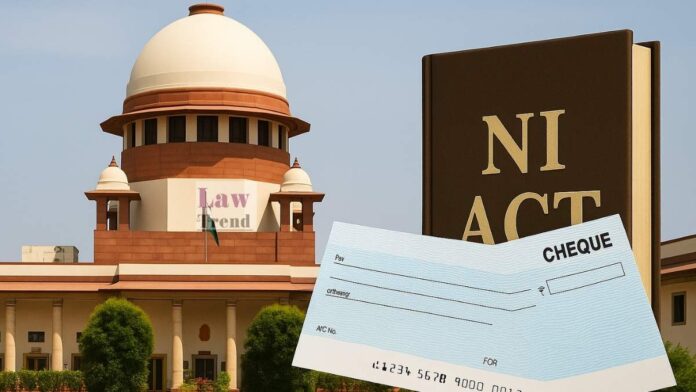The Supreme Court of India has overturned a Bombay High Court judgment that had acquitted an individual in a cheque dishonour case under Section 138 of the Negotiable Instruments Act, 1881 (NI Act). A bench comprising Justices Manmohan and N.V. Anjaria held that once the execution of a cheque is admitted, the statutory presumptions of
To Read More Please Subscribe to VIP Membership for Unlimited Access to All the Articles, Download Available Copies of Judgments/Order, Acess to Central/State Bare Acts, Advertisement Free Content, Access to More than 4000 Legal Drafts( Readymade Editable Formats of Suits, Petitions, Writs, Legal Notices, Divorce Petitions, 138 Notices, Bail Applications etc.) in Hindi and English.




